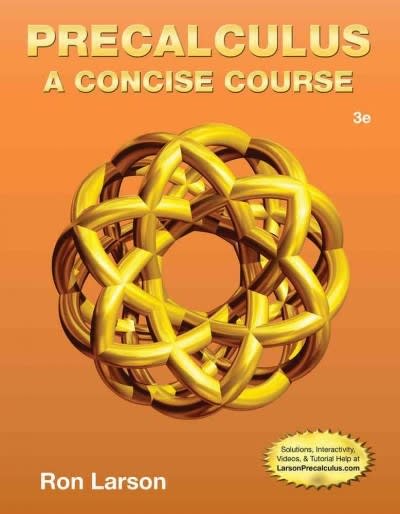Question
2. Exercise 11-1 In this first exercise, you should consider some of the basic terms that are key to understanding chapter 11. Some of these
2. Exercise 11-1 In this first exercise, you should consider some of the basic terms that are key to understanding chapter 11. Some of these terms can sound too similar to differentiate and appear too complex to understand at first glance. For each pair of terms below first define, each term then explains the important differences between them.
a.Relative frequency and cumulative frequency
b.Frequency and proportion
c. Central tendency and dispersion
d. Range and interquartile range
e. Frequency distribution and normal distribution
3. Exercise 11-11. During the 2004 presidential campaign, there was a lot of discussion about who benefited from the tax cuts initiated and signed into law by the George W. Bush administration. Senator John Kerry said, "George Bush's only economic plan is lavish tax breaks for those at the top." President Bush asserted proudly, "I have twice led the United States Congress to pass historic tax relief for the American people." Part of the argument turned on dollar amounts received by different groups. A White House news release claimed, "Under the President's proposal to speed up tax relief, 92 million taxpayers would receive, on average, a tax cut of $1,083 in
2003."' Yet one of the president's critics wrote, "The average working family would get about $289." Assuming both sides are telling the truth, how do you suppose they could reach such different conclusions? You will not be able to provide a definitive answer, but your knowledge of summary statistics should give you a good idea.
4. Exercise 11-12. Define as clearly as possible the following statistics. Try to explain each term in plain language.
a. The sample standard deviation
b. The median
c. The mode
d. The trimmed mean
e. The interquartile range
Step by Step Solution
There are 3 Steps involved in it
Step: 1

Get Instant Access to Expert-Tailored Solutions
See step-by-step solutions with expert insights and AI powered tools for academic success
Step: 2

Step: 3

Ace Your Homework with AI
Get the answers you need in no time with our AI-driven, step-by-step assistance
Get Started


